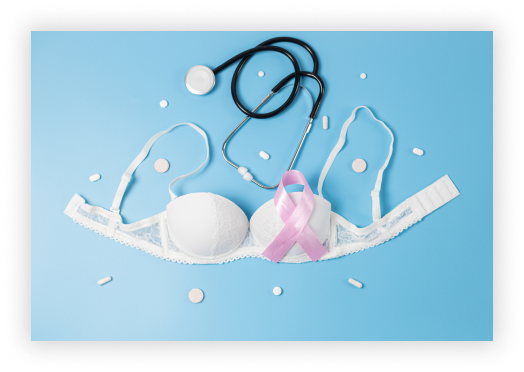Breast health tips and regular self-care practices

Breast health is an integral part of overall well-being for women. Taking care of our breasts through regular self-examinations and adopting healthy lifestyle practices can help maintain breast health and potentially detect any abnormalities early on. In this blog, we will discuss some key breast health tips and self-care practices that every woman should incorporate into her routine.
Regular Self-Examinations: The First Line of Defense
Performing regular self-examinations is essential for maintaining breast health. Familiarizing yourself with the normal look and feel of your breasts enables you to detect any changes or abnormalities promptly.
How to Perform a Self-Examination:
Stand in front of a mirror and visually inspect your breasts for changes in size, shape, or nipple appearance. Note any redness, swelling, or dimpling of the skin.
Raise your arms and look for any changes in contour or shape.
Gently feel your breasts using the pads of your fingers in a circular motion. Start from the outside and move towards the center, covering the entire breast and underarm area. Pay attention to any lumps, thickening, or unusual sensations.
Perform the examination lying down.
Place a pillow under your right shoulder and your right arm behind your head. Use your left hand to feel your right breast, following the same circular motion as before. Repeat the process for the left breast.
If you notice any changes or have concerns, it is essential to consult a healthcare professional for further evaluation.
Maintain a Healthy Lifestyle
Adopting a healthy lifestyle can significantly contribute to breast health and overall well-being. Here are some key tips:
Regular Mammograms and Clinical Examinations
Besides self-examinations, regular mammograms and clinical breast examinations by healthcare professionals are essential for breast health.
Mammograms: Mammography is a screening tool that uses low-dose X-rays to detect breast abnormalities, including tumors or calcifications that may indicate early-stage breast cancer. Mammography guidelines may vary depending on age, family history, and risk factors, so it’s important to consult with your healthcare provider to determine the appropriate screening schedule for you.
Clinical Examinations: Clinical breast examinations performed by healthcare professionals can help detect any abnormalities or changes that may not be evident during self-examinations. Regular clinical examinations, combined with mammograms, offer a comprehensive approach to breast health screening.
Conclusion
Prioritize Breast Health Through Self-Care
Taking care of our breasts through regular self-examinations, adopting a healthy lifestyle, and undergoing regular mammograms and clinical examinations are crucial for maintaining breast health. Early detection of breast abnormalities can significantly impact treatment outcomes and improve prognosis.
It is essential to remember that each woman’s breast health journey is unique, and it is advisable to consult with healthcare professionals to develop a personalized approach to breast care based on individual risk factors and medical history.
By prioritizing breast health through self-care practices and proactive screenings, we can empower ourselves with knowledge and take control of our well-being.
Recent Articles
Supporting Recovery Through Homeopathy and Nutrient-Rich Foods
Fatigue is a common and often debilitating side effect of chemotherapy, affecting a significant…
Homeopathy and Detoxification: How Personalized Remedies Can Support Post-Chemotherapy Recovery
Chemotherapy, while being a potent treatment for cancer, leaves the body burdened with…
Exploring the Role of Homeopathy in Preventing Long-Term Skin Damage After Radiation
Radiation therapy, while effective for treating various cancers, can cause long-term skin…





